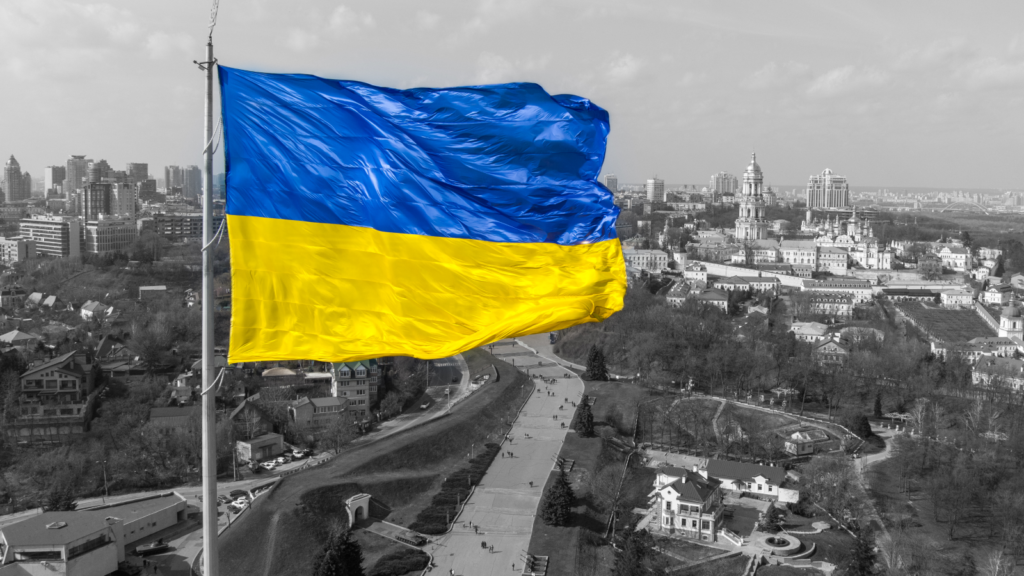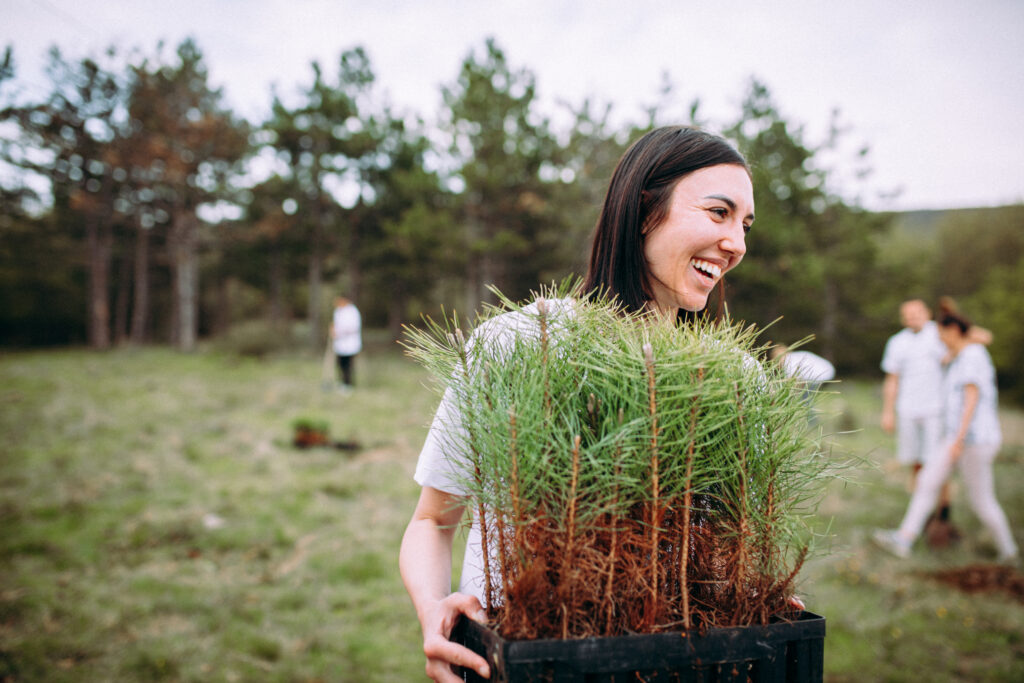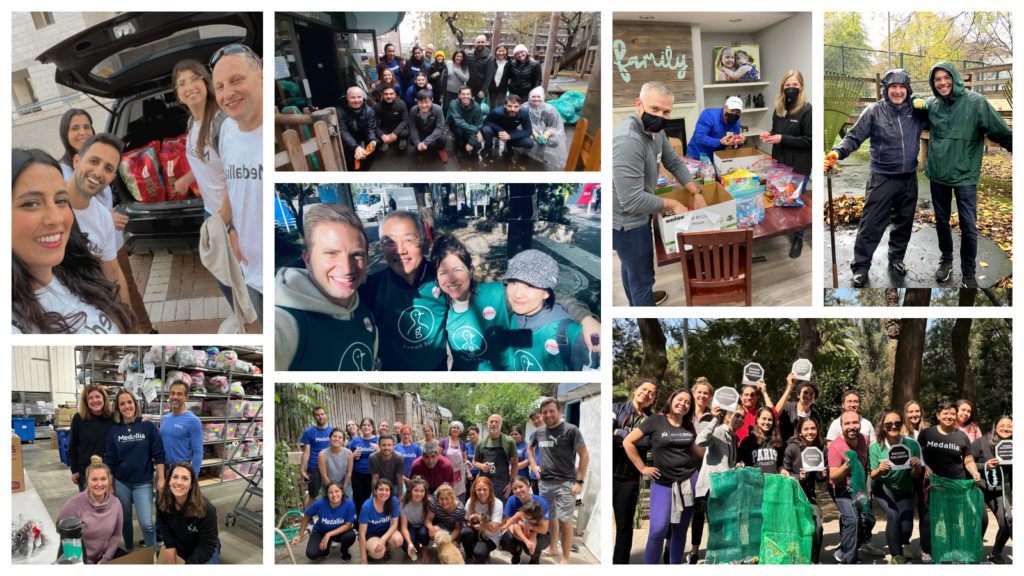Marta Kin, Medallia VP of International Marketing, shares her perspective from nearby Warsaw, Poland in this employee Q&A.
Like many companies, we at Medallia have tried doing our best to help refugees fleeing the ongoing tragedy in Ukraine. We’ve donated $26,000 to the International Rescue Committee (with $11,000 of that fundraised by our employees in just days), we are working to hire refugees, and we’ve watched many inspirational Medallians do even more.
Beyond the fundraising, employees in or from the region have helped crowdsource and promote opportunities for Medallians to volunteer, host, and support refugees in other ways. Some have gone even further, opening their own homes to refugees.
Millions of people have fled their own country looking for new homes, and new lives. According to the UN, more than 13 million people have left Ukraine since the war started in late February. Nearly 1.2 million have crossed the border into Poland.
One of our colleagues, Marta Kin, Medallia’s vice president of international marketing, has seen it happen in front of her. She lives in Warsaw with her husband and 13-year-old son, just a couple hours from the border, and she is one of those Medallians who has stepped up to help. Not only has Marta helped lead the internal charge on supporting Ukraine within Medallia, but she has opened her home to refugees.
For those of us on the other side of the world, it’s hard to imagine what Ukrainian people are going through. I asked Marta to share her story and what the experience has been like.
How did you make the decision to open your home to refugees?
Most people can’t do much beyond giving money, but we’re so close, it is easier for us to help. Most of our friends are doing the exact same things. When the war started, you couldn’t continue life as it had been. It was hard to watch TV at night. You wanted to act immediately, so we started with very basic things. When the refugees were first coming to Poland and our local train stations, we started preparing food and delivering sandwiches and water there. We helped collect items for kids and their families.
My son Frank is in primary school and his class already had one student from Ukraine, his new friend Kira. We helped collect money and clothes for her. She came here with just a backpack. Every single day there are collections, and we are all trying our best to help.
We have two extra rooms in our house that my husband and I were using for offices, and have a nice garden and space we don’t really use. We sat down as a family and it was a joint decision. We told our son what we wanted to do. He said absolutely and started getting his puzzles and games ready right away. He was hoping for boys so he could give them all his old toys.
How did you find the Ukrainian family that came to live with you?
We prepared the room and informed our friends and family we had space if they heard of any family or friends coming from Ukraine who needed it. After a few days, in March, we heard from one of our friends who knew someone in Ukraine through their work. When the war started, Vasyl, a Ukrainian sales operations leader for a fintech company, told his wife she needed to leave, and that’s how we were introduced to Natalia. She packed the car with a few suitcases and brought their two boys, Matwij, age 5, and Artem, 12. They were lucky and only had to wait a few hours in the queue to cross the border.
What was their arrival like, and how did you prepare?
It was quite funny at first. We behaved like it was before Christmas. We cooked a lot of food and filled the fridge. We also read a lot of books and articles on how to treat them. You think you want to push them and ask them to immediately join your family, but it’s not that simple. They are coming from a very different situation. They were building a new house outside Kiev and planning to move later this year. They had to leave everything.
We understood after a few days that we needed to leave them alone and let them live their life. For example, we learned not to ask them what they wanted to eat. They were very shy and didn’t want to interrupt us. We learned just to tell them when breakfast or dinner was ready and they were welcome to join us. They didn’t want to ask for anything.
Did that change?
They slowly started coming upstairs to spend some time with us. Natalia struggled in the beginning with English, but the boys spoke it well. She had a very good situation and job in Ukraine and was working remotely for a system integrations company, but didn’t have any Western customers. But as she practiced English, it became easier. After a few days, they felt more comfortable and began using our kitchen, doing laundry, and were much more open.
We even had some funny evenings watching cartoons and TV and cooking together. They made us Borscht, a soup that is the national dish of Ukraine.
And the husband was back home fighting the war in Ukraine this entire time?
Yes, all the men are. He has a phone and Natalia is able to communicate with him. It was funny, he sent me a LinkedIn request and he used to work for one of Medallia’s customers. And my husband has friends in this telco company where Vasyl used to work. How small the world is.
We were able to meet him through FaceTime. He speaks English and it was a very intimate, touching moment. He said thank you very much for helping my family. But for us, it was obvious. We did so little. But in the end, it was so important to him.
What’s been the hardest part of this for you and your family?
For us, the most difficult part was when they said they wanted to leave. In the beginning we were so afraid of how this was going to change our lives. These completely unknown people were coming to live with us.
And then suddenly they were part of our family. We only have one child and he is 13, but when Natalia said they wanted to leave I imagine it’s what it must feel like for parents when their kids leave to go study.
They were family. It was crowded, noisy — but wonderful. And now they’re gone. But I am so happy for them. They are doing great, so self-sufficient, and already a part of the Polish community.
Why did they leave?
They wanted to live on their own and be closer to the border. Most Ukrainians think the war will finish any day and things will go back to normal. We were sad and wanted to tell them to stay here longer, but you can’t. So we asked what we could do and helped them find a new flat in Lublin, a city close to the border.
They rented the flat with friends and are doing really well. We communicate with them and check how they’re doing. When they left, I said, “We are not going to offer the room for 10 days in case you don’t feel comfortable. There will be a place for you here.” What’s most important to me and my family is that we have new friends.
Will you offer the space to more refugees?
We are waiting a little because both my husband and I have been traveling for work, but we will. There are a lot of hotels offering rooms. We are very well organized here in Poland with organizations and processes to help. But we need to keep this momentum. This is a long process and people are still coming.
Do you think life will ever return to normal in Ukraine?
Oh yes. It will require a lot of financial support and unity. This is a war against democracy. Your country (the U.S.) has provided huge support from the president and congress. Rebuilding the country will take a long time. Ukrainians are so proud, honest people. It’s a great nation.
How can people help?
The most important thing is being human. If you see a Ukrainian refugee, try to help them. Welcome them to the neighborhood. Invite them out for tea, talk to them. They need help becoming part of their new communities. They need to become your neighbors. Have empathy.
But we also need to help with financial support and think long-term. Here in Poland, we welcome all these people. We welcome them to school and our classes, but what about language? Many have never spoken Polish before. We need to start from scratch. They need to buy books and don’t have money. What about health insurance? They need jobs and so much more.
And with jobs, you’re also working with Medallia to help there, too?
Yes, this is what I am most excited about and how we can help long-term. I have just hired three new team members from Ukraine. They will be working as part of my international team. We are still looking for more people to join our forces. This is the most important thing we can do to help these people long-term. Not just donate, but give them a chance to build a new life.
If you want to help Ukrainian refugees, here are a handful of organizations and opportunities to consider that Marta and other Medallians have found to support:







